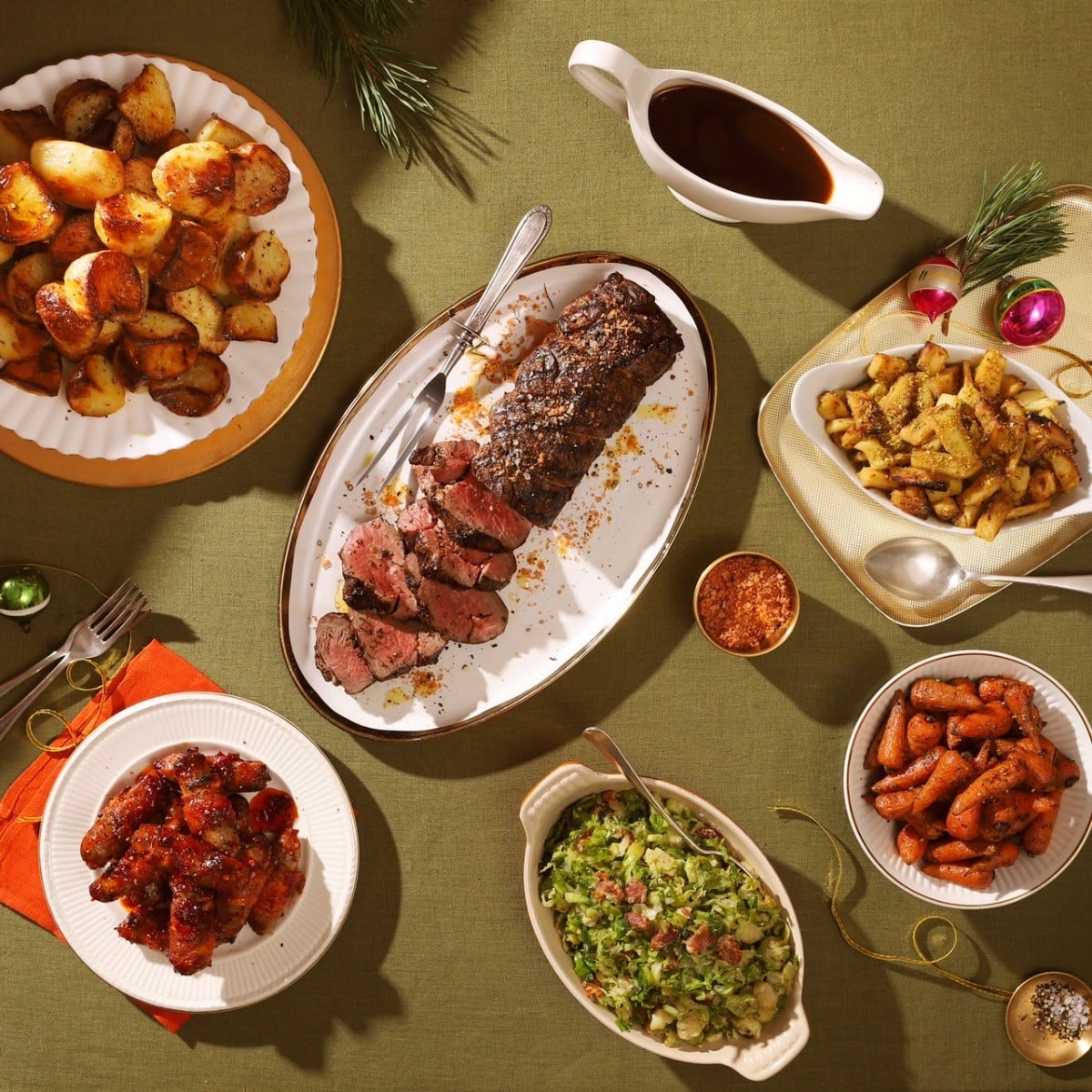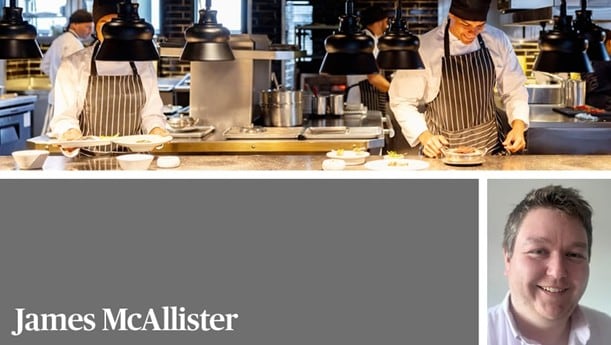There’s been a reassuring return of big-name business deals in the restaurant market of late. Dishoom’s partnership with L Catterton; Flat Iron’s acquisition by McWin and TriSpan; L’Osteria’s majority stake in Pizza Pilgrims. All of those feel like exciting and progressive moves that should pay significant dividends in the years to come. There is one deal, though, which has been perplexing to unpick.
Earlier this month it was announced that Karali Group had acquired Côte for an undisclosed sum. It came after the brassiere chain’s now former private equity owner Partners Group, which itself acquired Côte out of administration for £55m in September 2020, began working with Interpath Advisory on a search for new investors in the modern French-inspired brand back in the summer. It was reported at the time that roughly 60 of Côte’s 70 restaurants were believed to be profitable, with the business being marketed off the back of a turnover of more than £150m in 2024.
For those in need of a primer, Karali Group is a multinational family-owned business that has offices in the both the UK and the US. It’s led by father and son team Salim and Karim Janmohamed and for a long time was best known as the largest independent franchisee for Burger King UK, operating 74 sites. However, it exited the portfolio in 2022, selling to master franchisee Burger King UK.
In the past year or so, though, Karali has begun expanding its presence again. First it acquired Crosstown Doughnuts through a pre-pack administration in June 2024. This was followed a month later when it became the UK’s largest Taco Bell operator after purchasing 46 sites under the TexMex brand from Caskade Group in a pre-pack administration.
Earlier this year, the group expanded its reach into the fast casual space by taking on the master franchise agreement for Japanese megabrand Marugame Udon in the UK and Ireland. Under the new partnership, Karali Group will lead the development of new Marugame Udon restaurants on these shores and has acquired and assumed operation of its existing nine-strong estate based across London and Reading.
All three acquisitions present their challenges: the first two being distressed sales, and the third centring on a business that has yet to fully establish itself after early momentum. Karali Group clearly has a vision, though, for how it can harness their respective opportunities. Shortly after acquiring Crosstown, it muscled into the omnichannel space by securing the brand’s first supermarket listing with a five-strong range of exclusive doughnuts for Waitrose. With Marugame Udon, it has transitioned the business from a corporate-owned to a fully franchised model, which is likely to offer up greater breadth for expansion with a concept that retains plenty of potential for scalability.
Which brings us on to Côte, which was presented as a solvent transaction, but has the whiff of an opportunistic deal. The French brassiere brand has not had the easiest ride in recent years. The impact of Covid forced the administration that led to the Partners Group acquisition; the years since have seen the business dogged, like the rest of the sector, with cost-of-living struggles, which has seen further cuts to its estate; the sale in 2020 including 93 core restaurants staying open.
There is space for a chain like Côte to thrive again if it can get its positioning right
Founded by serial investor Richard Caring, alongside Andy Bassadone, Chris Benians and Nick Fiddler in Wimbledon, London in 2007, the chain enjoyed a rapid rise, growing to 45 sites before it was acquired by private equity firm CBPE in 2013, in a deal worth £100m.
The deal came a year after Cote was named the restaurant brand with the fastest-growing profits in the UK, in a tracker published by MCA and AlixPartners. Just two years later, the then 65-strong bistro chain changed hands again, with BC Partners paying an impressive £250m for the business.
The confident growth and strong like-for-like sales came despite the objections of restaurant critics, with The Times’ Giles Coren describing its sirloin steak as “terrible”.
In 2015, the group found itself at the centre of a media storm for allegedly ‘misleading’ customers by taking the 12.5% service charge instead of giving it to staff. The scandal put the spotlight on tipping practices across the entire UK restaurant industry, prompting a government investigation and calls for new legislation to ensure tips are passed on to workers.
Still the brand continued to grow close to 100 sites prior to the pandemic, despite discontinuing two unsuccessful sub-brands, Jackson & Rye and Limeyard. And in 2018, MCA’s insight division reported Côte “significantly out-performs the vast majority of its chain-restaurant peers with a highly impressive NPS”.
When the pandemic hit, Côte was forced into administration, with new private equity owner Partners Group installing former Wagamama CEO Jane Holbrook as executive chair to steer the brand out of the doldrums. Speaking to MCA in 2021, she set out plans take the French brasserie brand from being, “a bit broken”, having “lost its way” to “one of the stand-out performers in the market”.
“We want to make it a bigger part of the eating out marketplace,” she said at the time. “We’ve got to make it more relevant.”
If anyone had the power and vision to inject a new lease of life into Côte it was Holbrook. She was part of the management team that turned Wagamama into one of the sector-leading brands it is today. Yet despite some reasonable swings – launching an estate-wide refurbishment program and drafting in a former Gordon Ramsay Group head chef to shake up the food offering – her tenure failed to deliver the French revolution the brand needed, and Holbrook left the business in June ahead of the sale to Karali.
In March this year, prior to Holbrook’s departure, Côte did appoint a new CEO, Emma Dinnis, who joined the group from Sofology, where she had been managing director for the past three years. Bringing retail and customer experience expertise from various senior roles, it would suggest the group is hoping for some out of the box thinking to drive its ambitions to, as Dinnis recently put it herself, “transform and grow the brand”.
What will this look like, though? In September the group rolled out a new weekday promotion offering guests five of its most popular dishes for £10 each, in a bid to drive value-led engagement during the week. Available Monday to Friday, the initiative sees a different dish featured each day: steak frites on Monday, salmon béarnaise on Tuesday, confit pork belly on Wednesday, beef bourguignon on Thursday, and moules frites on Friday.
It’s a clever strategy, and one that neatly taps into the renaissance in casual French dining that we have seen fuelled, particularly, in London by the likes of Josephine Bouchon, Café François and Marceline. The challenge, however, is that integral to the allure of those independent businesses is their chef-led authentic approach; something not associated with a nationwide chain.

That said, Côte has done more than most restaurant groups of its size to reinforce is more foodie credentials. The aforementioned appointment of Gordon Ramsay’s former executive chef Steve Allen, who headed up the kitchen at Ramsay’s restaurant at Claridge’s, in 2022 demonstrates its commitment to food and the group makes regular seasonal changes to its menu - rather than updates led by the prevailing trends. It also operates Côte At Home, which delivers a range of premium meal boxes (including Christmas ones, the most expensive of which this year is a chateaubriand feast for six for £164.95) as well as cheese and meat boxes, an offer more commonly associated with independent fine dining restaurants than high street chains. Its new owners would do well to ensure that elements such as these are not allowed to slip.
There is space for a chain like Côte to thrive again if it can get its positioning right. Most if not all of its rivals are now (snail) shells of their former selves: Café Rouge, which once operated more than 100 restaurants in the UK, now has just six, five of which are in Center Parcs. Earlier this year, Bistrot Pierre’s estate was cut from 18 sites to 10 after it was sold in a prepack administration to Cherry Equity Partners. Raymond Blanc-founded Brasserie Blanc looks as if it has taken a back seat to stablemate Heartwood Inns.
On the surface, being owned by a QSR operator and led by an expert in retail might not sound like the best recipe for success. But maybe it’s through this combination that fresh innovation and success will be born. Bonne chance.
James McAllister is business editor at MCA.

